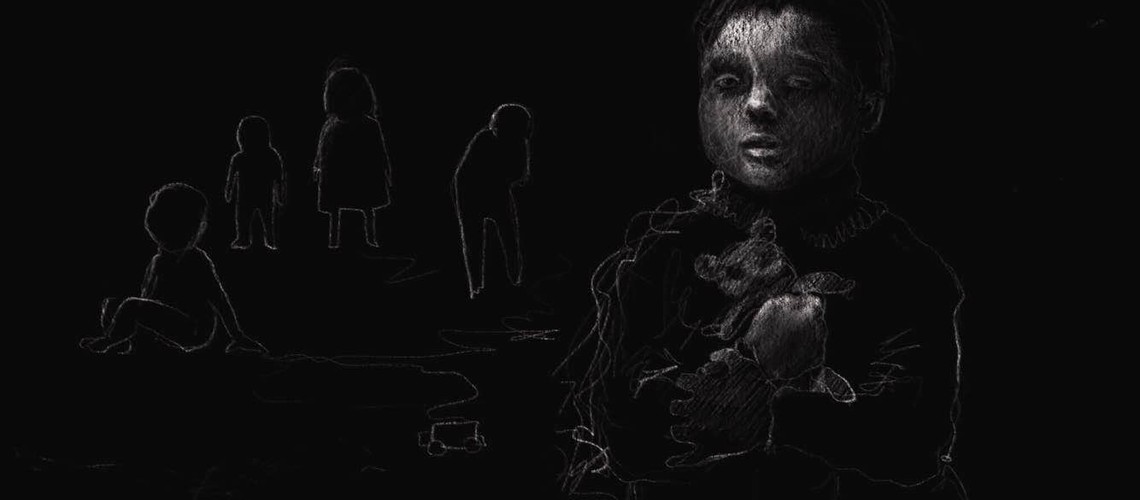
The “Hidden Children” of the South Caucasus
However much the Caucasus might be associated with widespread affection for children, that warmth and understanding does not always exist for disabled children. Even when parents accept their children as they are, many in Armenia, Azerbaijan and Georgia – whether fellow students, teachers or civil servants – nonetheless try to exclude them from mainstream society.
Why do these barriers exist between disabled and non-disabled children? Why do parents sometimes hide their children at home? Why is it that these children are so rarely seen in public schools, at the pool, on public transportation? What forces families to refuse to care for their children and give them over to special institutions?
A group of journalists from the South Caucasus researched the topic of disabled children to find out more.
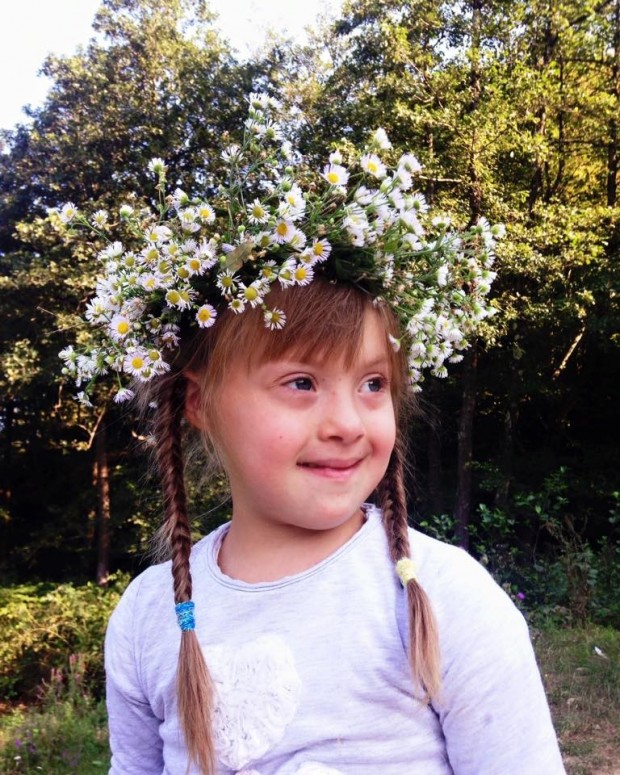
Both Their Relatives and Society Are Against Them. . .
Often the pressure begins in the family. Forty-three – year – old Meri Martirosyan (Armenia) told how her mother-in-law forced her to give her two children over to an orphanage because her 15 – year – old daughter Sirushik was born with cerebral palsy, and her 16 – year – old son Samvel was diagnosed with autism. But Meri refused to submit to her mother-in-law. As a result, her husband left her and the children. Meri, however, persevered; she stood by her son and daughter.
Gynecologist Zarifa Quliyeva (Azerbaijan) has worked with disabled children for more than ten years. In her youth, she voluntarily agreed to take care of such children, so that underprivileged families wouldn’t have to institutionalize them, or give them away to an orphanage. She said that such stories such as Martirosyan’s are in fact, rare, and often, people often succumb to the pressure placed on them by their families.
Quliyeva recounted, “I remember, I took care of one girl, Turana, for a year. She was six years old, indescribably beautiful, with long, silky hair. She had autism. Another healthy girl was being brought up in the family. The family was very concerned what would become of the second girl; they worried that nobody would marry her because of her disabled sister. And having an old maid for a daughter is a tragedy for an Azerbaijani family. And so, when the girls’ grandmother, a powerful, old woman, came from the village, she demanded that they immediately give Turana over to institutional care and forget about her. She said, ‘At least let one of them be happy. Don’t let the unlucky one hinder her sister’”
According to Quliyeva, in the end, Turana’s family gave her up to an orphanage.
Olga Khodko from Tbilisi has a similar story. “I have a daughter, Sophia, with Cornelia de Lange syndrome.”
Cornelia de Lange syndrome affects the growth of a child both before and after pregnancy, and results in intellectual and physical disabilities.
“She’s seven now, but in terms of her physical and mental development, she’s like a two or three-year-old child. She’s in no way aggressive; quite the opposite even, overly reclusive and tense. She doesn’t speak. She’s very quiet and friendly. She walks on her own, though with some difficulty… Until she was three years old, she had serious health problems, and, as such, sending her to kindergarten wasn’t even an option,” Khodko commented.
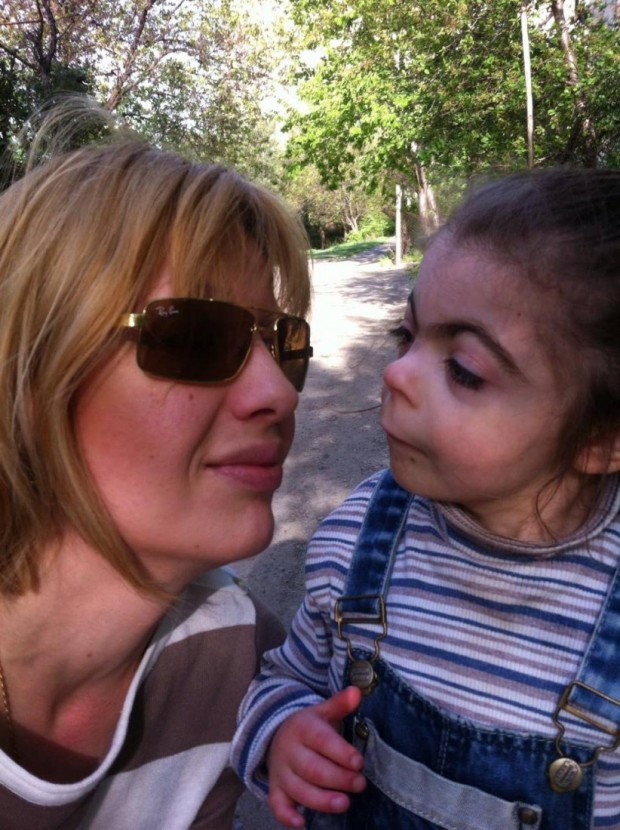
Specialists in child development consider it preferable that such children be at home with their family, rather than in a state institution. Arutyun Balasanyan, director of a specialized school for children with disabilities in Kharberd, a village south of the Armenian capital, Yerevan, agrees.
“Most parents of such children take all the responsibility for care onto themselves until the child is six or seven years old. Society should back and support them, so that they don’t feel like outcasts. Unfortunately, this sort of tendency is lacking in our society, and we encounter serious problems as a result. Often, in apartment blocks, residents complain to them that the children can’t sleep peacefully because the disabled children are throwing tantrums and making noise, because they hit or bite children playing in the courtyards and break their toys. Because of such complaints, parents commit their children to institutionalized care,” says Balasanyan.
Thirty-four- year-old Georgian Liya Tabatadze’s second child, Teodora, was born with Down’s syndrome. Tabatadze told us about her experience:
“I remember when I first had to say aloud that my child has Down’s syndrome. I was talking with a relative. I couldn’t tell him, as if there were a lump stuck in my throat. I walked from one room to another, running away from a discussion about the child. In the end, I overcame myself, forced myself, you might say, and said that the child has Down’s syndrome. Some people need a couple of months to get over this; others their entire lives. This isn’t a problem for a certain kind of parent. In this case, all parents need counseling, and everyone has their own approach. There are some who judge parents, point their fingers and say, ‘They are ashamed of their child. They hide the child.’ This isn’t right, they need to be supported,” advises Tabatadze.
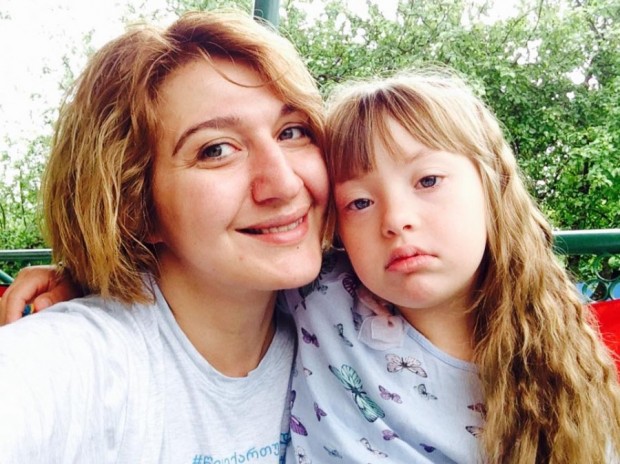
It wasn’t too easy for this mother of two to come to terms with the situation. At first, she cried all the time. When she calmed down a bit, she began to look for information on the internet.
“I saw that parents speak about their children openly, post photos of them instead of hiding them, take them to kindergarten, to school, and celebrate their birthdays. But at the same time, I saw that there were no photographs of children with Down’s syndrome. From the very beginning, I got the impression that my daughter was the only one.”
After a long search, Liya Tabatadze found the organization Our Children, which brings together professionals and the parents of Georgian children with Down’s syndrome. They distribute information in maternity clinics and in kindergartens, but despite their endeavors, nobody in the maternity clinic Tabatadze used had provided her with needed information .
“To this day, there exists the problem of low awareness. Yes, even in civilized countries nobody would be happy to find out that their child was born with peculiarities. Everyone has to go through the same stress and to beat it. But who overcomes this stress, and how? Some fall into depression, and pull the child along with them, while some take this and move forward, having created a positive, healthy family environment for the child,” says Tabatadze.
Pre-existing stereotypes, legacies of the Soviet system, isolate disabled people from society; today, these stereotypes are being slowly removed and with great difficulty. Some parents abandon their disabled children and give them to orphanages before they are three years old. Many abandon them at birth, when it becomes clear that the child was born with problems. Also, many parents hide such children from the outside world. And those who find the strength not to abandon them encounter problems in almost every sphere of life.
Ketevan Shubashvili, head of the department for equal rights in the Georgian Public Defender’s office, explained.
“In 2015, a family with three children was forced to move out of a rented apartment in Tbilisi only because one of the children had autism. The apartment’s owner stated that the child might suddenly break something in the apartment or start a fire. The whole family was put out on the street. After this, the family, with the help of non-governmental organizations, went to court and won the case. The apartment owner was punished an administrative fine of 1,000 lari (about $435).”
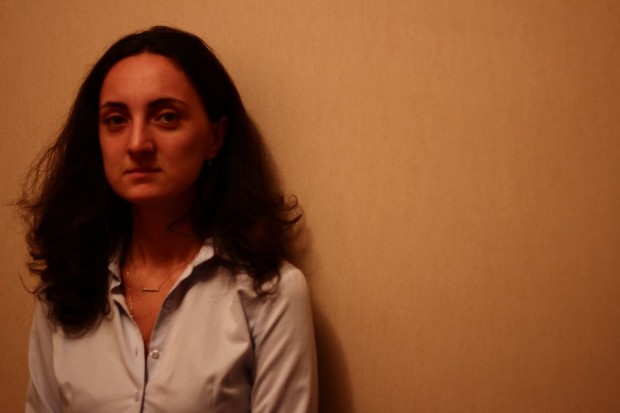
Shubashvili believes that low awareness of these issues leads to such attitudes .
“Often people don’t have enough information. Whether it be parents at school or bus drivers, police officers and so on. Often they have completely incorrect information about disabled people. They are under the influence of negative stereotypes. And a second problem is government policy, in which the question of defending the rights of disabled individuals is not a priority,” she stated.
It is already Gia Jvarsheishvili’s seventh year working in this field, and he believes that progress is being made in Georgian society because of the fact that many NGOs have long worked on this. Jvarsheishvili works for the Inclusive Society – Georgia movement.
“Our society, finally, recognized that such people exist, but does not yet know how to behave around such people and how to interact with them. That’s the current level of our society. You could say that we, NGOs, forced journalists to use correct terminology, the majority of them no longer write ‘invalid’ or ‘incapable,’ and the same goes for politicians who might go so far as to call one another ‘Down,’ ‘gizhi’ (crazy) or ‘idiot’ as an insult. Now, if such a thing takes place, society reacts pretty sharply. And, as a rule, politicians have to make apologies afterwards. You might say it’s slowly, but this negative attitude is changing,” the expert hopes.
How Is It for Them on the Streets?
Going outside and even having something resembling a social life is also not easy for children with disabilities. In all three countries of the South Caucasus, there are almost no measures taken to provide for the mobility of people with disabilities. Small measures such as buses that run in the capitals of Armenia and Azerbaijan barely meet the needs of people confined to wheelchairs.
In a famous video shared by Azerbaijani blogger Mehman Huseynov, the driver not only refuses to help, but also speaks rudely to the person in a wheelchair needing his help.
In Tbilisi, ramps have recently started appearing on the sidewalks to assist with street crossing both above and underground. Gia Jvarsheishvili explained that these ramps are not easily accessible however, nor do they always function.
“The Tbilisi mayor’s office is required to install ramps throughout the city. But all these ramps that we see have not been made according to standards. Often, neither people in wheelchairs, nor blind people are able to make use of them. Tactile indicators should be installed there for blind people, so that they can feel them with their feet. There are also only two pedestrian underpasses in the city that are equipped with special mechanisms for people in wheelchairs. But they never work,” says Jvarsheishvili.
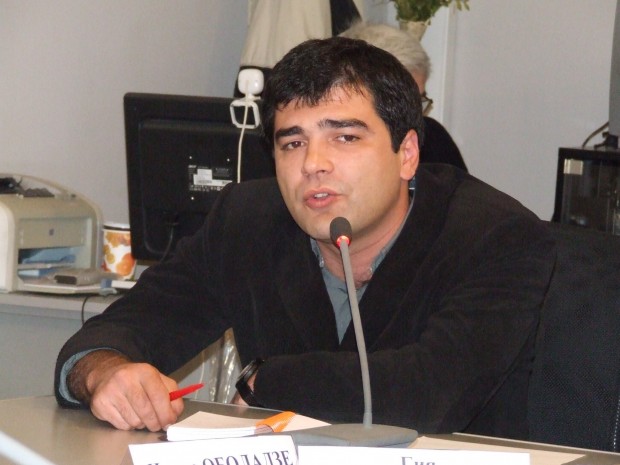
The situation in Armenia and Azerbaijan is analogous. What ramps do exist often don’t conform to technical standards and are simply impossible to use. In apartment blocks there is no sort of specialized equipment that would help parents of children with special needs take them outside, to a café, to the theater, or simply to get a breath of fresh air.
27 – year – old Azerbaijani blogger Orhan Adigozel, who has been using a wheelchair for eight years now, writes primarily about the problems for people with disabilities. According to Orhan, just breathing fresh air remains a dream.
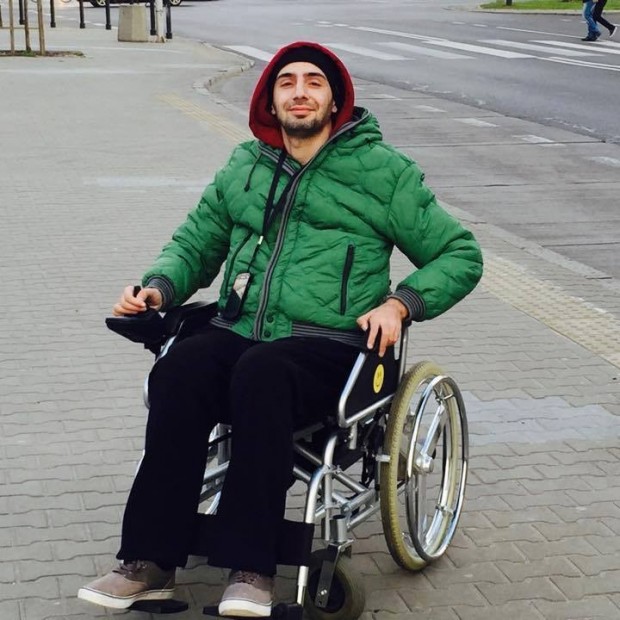
“Imagine, I need two helpers, in addition to my father, just to carry me outside. And it’s not always possible to find such help. And I’ve been lucky, with relatives and with friends. But there are people who don’t have relatives. And who will help them? And all because of the fact that there is no special equipment for wheelchairs in our residential buildings.
Gia Jvarsheishvili believes the issue is that the government views the problems of people with disabilities as not falling within the sphere of human rights. “They view them as objects of charity.”
Acts of Discrimination in Schools and Kindergartens: “They Said He’s Not Ill. He’s Abnormal!”
Khodko claims that she could not enroll her daughter in a public kindergarten once she turned five years old. Either there was no more room, or there was no psychologist. Or her daughter was lumped into a group with other special-needs children.
“The director said, ‘You’d be better off with a private kindergarten, where they’ll look after her well, than amongst 40 other children. The child will have a nervous breakdown. And what then?’ At last a private kindergarten opened near our home with wonderful conditions and teachers, a pleasant, young woman as director, who was forced today to refuse to admit my child for only one reason . . . Several young moms were opposed to their children being in the same group with a special child,” Khodko related in despair.
An analogous situation took place with Meri Martirosyan’s son.“My daughter, who had a problem with her locomotive system, was easily admitted to school. I took her into school in her wheelchair, and then carried her in my arms to the fourth floor. They easily accepted Sirushik to the school, but with Samuell they put up a fight. They said that he’s not a sick child, but an abnormal one. They made a real drama for me at the school. The whole year, I took Samuell to school, crying. Then they got used to him,” remembers Meri.
Martirosyan says that now, when Samuell gets up from his seat during a lesson, talks, walks around the classroom or leaves class, nobody pays any attention. She didn’t comment wether she thought this lack of attention was a positive or negative.
In one corner of the room, Sirushik plays the piano, and in the other corner Samuell sits before the computer and sometimes mumbles quietly to himself. Meri Martirosyan says that she checked her son’s IQ, which is 130. She was never ashamed of her children: “I went to war with society and their stereotypes. Thanks to my strength of will-power, I learned to live and help my children to live.”
Martirosyan admits that, all the same, she never wants to think about the fact that her son has autism.

Ana Ketashvili from Tbilisi is the mother of a child who was diagnosed with a light form of infantile cerebral palsy. Her daughter, Nicole, is seven years old. In December 2015, Ketashvili and her spouse went to the school ahead of time to meet with the principal and have a look at the situation. From the first meeting, she said, the principal gave them a very warm welcome.
“We said that we had chosen this ecclesiastical school precisely because it was clean, there were not many children per class, and because they provided a good education. We warned that our daughter has slight problems, that she has a very light form of infantile cerebral palsy, as a result of which she walks on her tip-toes. Later, we registered [her]. Everything went well. They got to know Nicole. Then we found out that this year, they’re going to build a third floor onto this school since there are many people wanting to get in. Of course, I was happy, since I was once more convinced that I had made the right choice,” said Ketashvili
A school psychologist’s test changed all that, however. Nicole answered 70 percent of the questions, according to her mother, but this result did not satisfy the principal. He summoned the Ketashvilis and told them that Nicole’s infantile cerebral palsy meant that psychologists at Tbilisi’s central clinic must assess her IQ.
“We asked what the problem was, and he responded that, in the opinion of the school psychologist, the child was retarded. Of course, my husband and I were in shock because, at six years old, she knew three languages (Russian, Armenian, and Georgian), knows the alphabet, and can count. Then the director in his cassock emphasized, “Did you not think that the child might be humiliated here?” I responded, ‘No, I didn’t think so because you have a church school.’ Later, he said ‘We have intensive education at our school, and we believe that your child isn’t keeping up, and will interfere with the education of the other children,” Ketashvili claimed.
She nevertheless took her child to a psychologist, who talked with her for an hour and a half twice in two days. After that, Ketashvili says, the psychologist was outraged, wondering why the school demanded a diagnosis for the child since she had no mental retardation.
“But we didn’t want to return the child to that school, I don’t want to remember. It’s disgusting . . .”
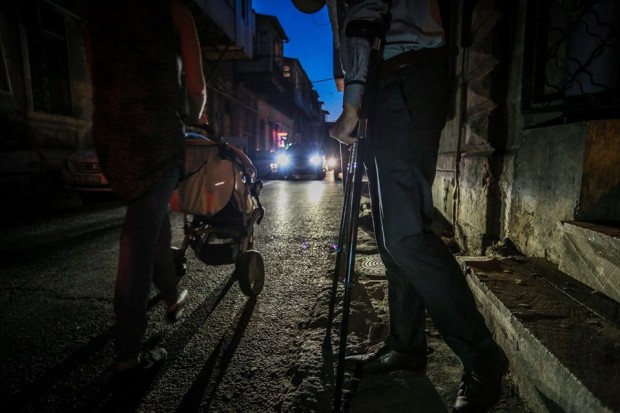
Statistics: Determined to Hide Them and Make Money on Them
There is little statistical data in the South Caucasus on discrimination against children and adults with special needs. Nonetheless, such problems persist.
There are 202,839 individuals in Armenia with dissabilities disabled people, of whom 8,000 are children, Out of this number, 560 live in one of three special institutions the country has.
In 2016, Azerbaijan’s state statistics committee reported 576,269 disabled people , of which about 65,000 are minors. According to data from various sources, 11,000 of these children live in the country’s ten special institutions. Almost all social workers who responded to our questions were skeptical about the official data on children with disabilities.
Former social worker Sanubar Heydarova notes that the government is not interested in indicating the exact number of people with disabilities. The authorities also refuse to register many individuals as disabled in order not to have to pay support to their families, Heydarova claimed.
At the same time, other civil servants are also intent on increasing the numbers indicating children who live in special, state institutions: “They allocate enormous sums of money from the budget for maintaining such institutions. And, logically, they have to increase the numbers, in order to allocate more [money].”
In Georgia, there are more than 127,000 people registered with disabilities. A little less than 10,000 of them are minors. But, according to experts, this also in no way means that the numbers are correct.
According to Gia Jvarsheishvili, the financial assistance given to such people are the same as old-age pensions. For this reason, grownups do not register themselves as disabled, and accept their old-age pension. “Around 10 – 15 percent of the planet’s population has some kind of a disability. If you apply this to Georgia, there should be around 300 – 350,000 people.”
In all of Georgia, there are five special institutions where people with disabilities live. At the moment there is a process of de-institutionalization underway, meaning that the special establishments containing individuals with disabilities will be disbanded. After the institutions are closed, these people will be distributed among family-type and foster – care establishments, in which more than five individuals will live.
The Law
Armenia has still not adopted a law to protect the rights of individuals with disabilities.But a bill proposed in parliament this June would ensure the disabled equal rights in all areas of society. On public transportation, necessary equipment for the handicapped would be installed, and audio signals and displays would indicate the schedule at stops.
Armenian law provides for monthly support-payments of 21,000 drams ($45) for adults and children with disabilities.
Azerbaijani law also provides for various benefits (allowances, education, special institutions) for people with disabilities. These considerations also apply to minors with physical and mental health problems. But, in fact, it turns out that these considerations are entirely insufficient. The monthly allowance is only 67 manats ($41). Only two special institutions exist for the 65,000 children with disabilities.
In its turn, Georgia, in 2009, joined the United Nations Convention on the Rights of Persons with Disabilities, a critical document in the sphere of rights for the disabled. After long years of discussion and pressure from NGOs, the Georgian parliament ratified the convention in 2013, four years after it was adopted by the UN. Now the challenge is implementation. Jvarsheishvili claims that this is a very difficult process, which should take place in stages and according to a plan.
“A council was created under the office of the prime minister, but it was ineffective and was disbanded. Now they’ve brought in various experts, including experts from the UN, who advise on how to implement [the agreement], and a new council will be created on the basis of their recommendations,” Jvarsheishvili said.
Disabled Georgian children receive monthly support payments of 180 laris ($78). After they reach adulthood, the sum varies from 70 ($29) to 180 lari ($76), depending on the category of disability.
Inclusive Education
In Armenia, the government introduced inclusive education in 2010 to try and relieve the burden on orphanages .
Today, there are 117 inclusive schools, with 2,600 special-needs students. A representative of the Ministry of Labor and Social Security, Anna Akopyan, notes that even though inclusive education gives children a chance to integrate with society, not all parents want this.
“The problem isn’t the children, but the parents. The children have a more inclusive attitude toward all of this than the parents do,” says Akopyan.
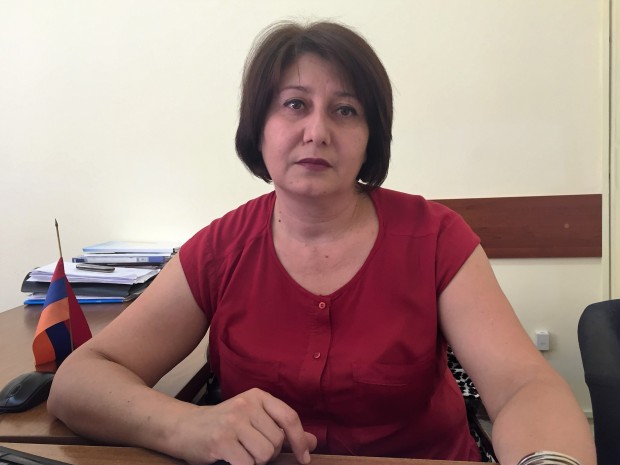
In Armenia, as in all countries, UNICEF is influencing the development of this program.
For her part, Akopyan notes that society ought to support such families, so that the parents don’t return their children to the special schools.
“Beginning this year, programs will be implemented in one of the kindergartens of Yerevan, which includes care and therapy for children with special needs in separate groups, and which prepare them to enter general groups [of students] in the kindergartens. This program is spreading step by step. We are taking steps to catch up with those countries that implement this program from the day a child with disabilities is born,” says Akopyan.
With help from Norway, inclusive public education in Georgia began in 2006. Ten pilot schools were opened, and 20 pilot kindergartens. Since 2012, all schools have been obliged to accept all children. But this has its own problems, as Tabatadze recounts.
“There are not special-education teachers. This isn’t taught in even one university. Only recently, about a year ago, they opened a master’s program in speech therapy. And so, these master’s students haven’t yet started to work in the schools. And, in the meantime, all these responsibilities have been taken on by the regular school teachers and psychologists. But time is needed for this whole process. This is new for all of us. Time is needed to prepare and have strong staff in the schools. And therein lies the biggest problem – there’s no motivation. The special-education teachers receive wages of only 280 laris (about $122). This is very little for such difficult work. There’s also not enough special literature. The government can’t be blamed for everything, they say that they have a lack of finances,” emphasizes Tabatadze.
According to her, any child who has developmental issues also needs a rehabilitation center, but this is a luxury for Georgia.
“There are four service-centers and another pair of rehabilitation centers for autistic individuals. There are few centers and few specialists. But according to the UN convention, the government is specifically obliged to help develop these services. Specifically obliged, not so that we have to wait until they someday decide to do this, or wait until an NGO does it. Unfortunately, we are moving at a turtle’s pace,” summarized Tabatadze.
In Azerbaijan, the government has been discussing inclusive education since 2004. In the country’s larget cities (Baku, Sumqayit, Mingachevir), older public school students complained that children with disabilities can study with them. Beginning in 2006, almost every year the Ministry of Education declares several schools pilot institutions for its inclusive-education project. This year, by order of Education Minister Mikayil Jabbarov, four large schools were declared pilot institutions. But since there is no concrete law for inclusive education, specialists treat this order skeptically.
Anubar Heydarova says that many school and kindergarten principals are prepared to help, but the law doesn’t provide them such rights. “Laws for inclusive education have not been adopted in our country. The obligations taken before the UN have been entirely forgotten. Here, to the present day, special-needs children are locked away either at home or in special institutions.”
***
Of course, it’s easy to blame parents who refuse to care for their children who were born with problems or have become physically disabled as a result of some accident. But we have seen the problems that sometimes act as definitive reasons for refusing such physically and psychologically difficult care. What can a parent do, who has the love and strength to care for their child, who has the desire to create the home and social atmosphere that their child needs, but who lacks money and infrastructure, who lacks the understanding of relatives, civil servants, and the government? So long as these remain open questions, children with disabilities in the South Caucasus will be committed to asylums, and hidden from the eyes of neighbors, from schools and from their peers.
Editor’s Note: This article was written as part of the project, “Taboo topics of the South Caucasus”
by:
Gunel Movlud (Azerbaijan)
Edita Badasyan (Georgia)
Gayane Mkrtchyan (Armenia)




